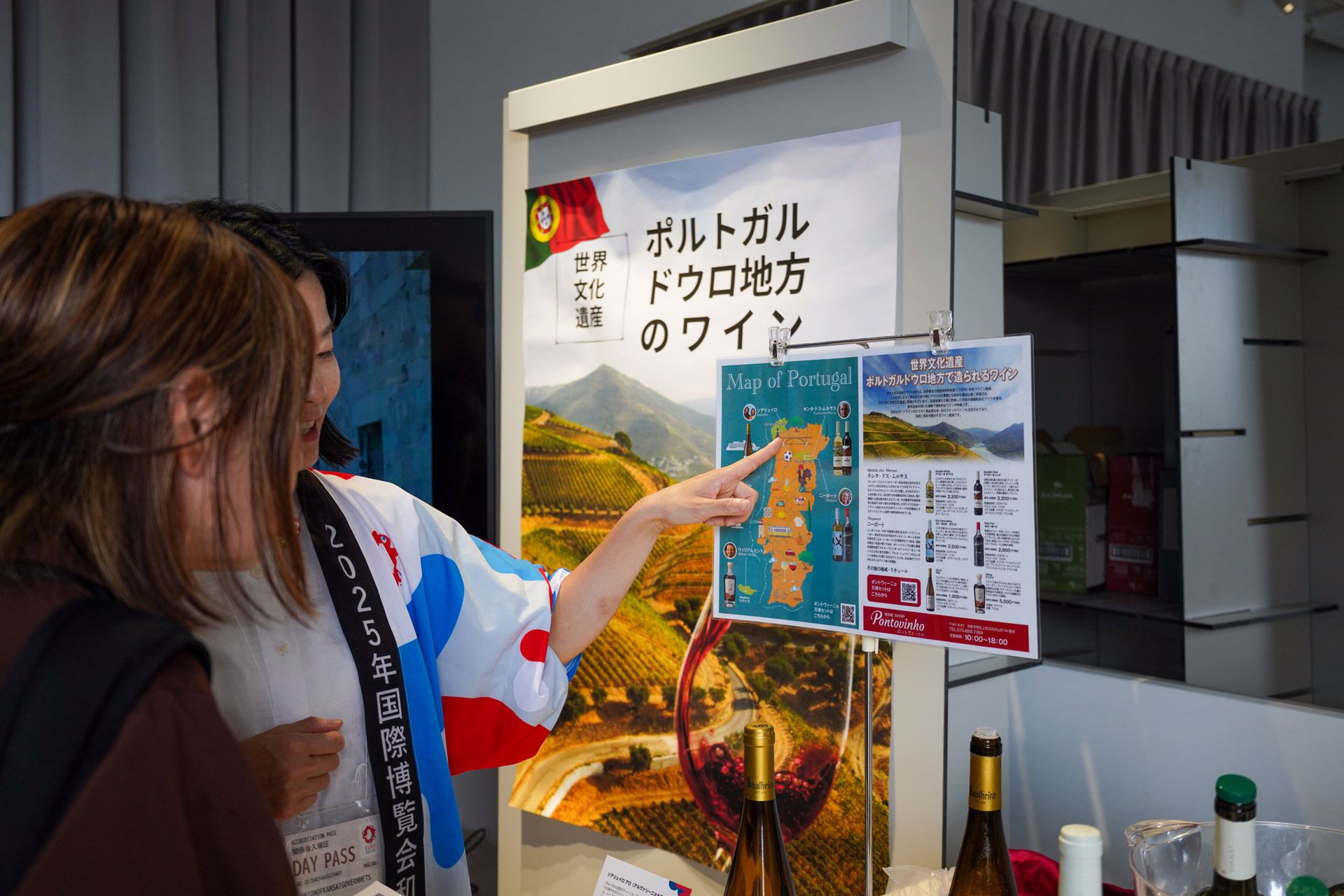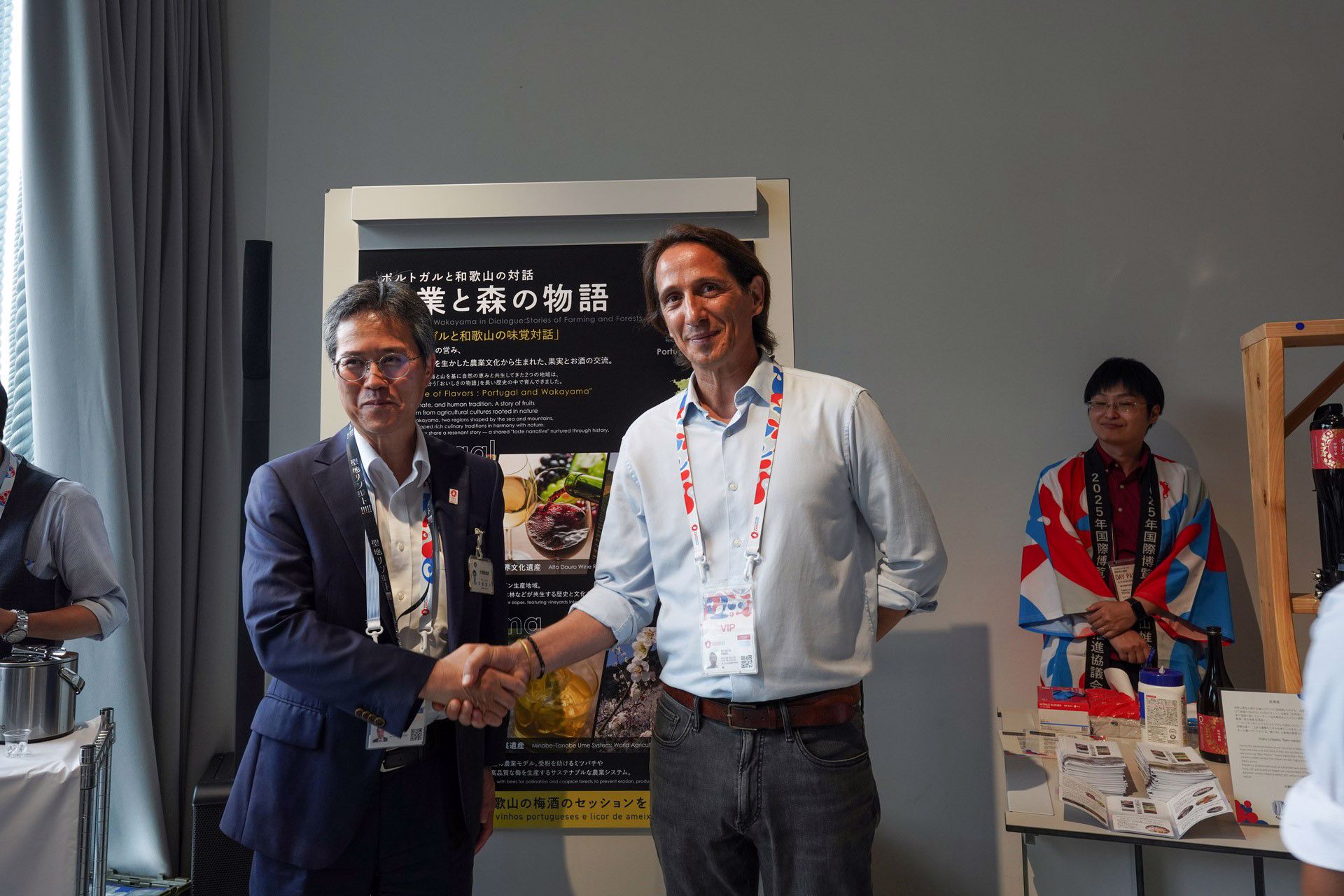On 8 July, the Portugal Pavilion at Expo 2025 Osaka hosted the event “Portugal and Wakayama in Dialogue: Stories of Farming and Forests” — a meeting that brought together two regions united by nature, tradition, and a shared commitment to sustainability.
The event highlighted sustainable agricultural practices and unique heritage systems, such as Japan’s Minabe-Tanabe Ume system, recognised as a Globally Important Agricultural Heritage System (GIAHS), and Portugal’s Alto Douro Wine Region, a UNESCO World Heritage Site.
Attendees had the opportunity to taste GI-certified products — Japan’s Umeshu plum liqueur and Portuguese wines — while exploring the landscapes and stories behind them. Forests also played a central role in the discussion, from Japanese cedar trees now thriving in the Azores to Wakayama’s innovative use of thinned cedar wood for eco-friendly infrastructure — a solution with positive environmental and economic impact.
The event highlighted sustainable agricultural practices and unique heritage systems, such as Japan’s Minabe-Tanabe Ume system, recognised as a Globally Important Agricultural Heritage System (GIAHS), and Portugal’s Alto Douro Wine Region, a UNESCO World Heritage Site.
Attendees had the opportunity to taste GI-certified products — Japan’s Umeshu plum liqueur and Portuguese wines — while exploring the landscapes and stories behind them. Forests also played a central role in the discussion, from Japanese cedar trees now thriving in the Azores to Wakayama’s innovative use of thinned cedar wood for eco-friendly infrastructure — a solution with positive environmental and economic impact.

These examples, along with Portugal’s ocean-focused sustainability efforts, reinforced the dialogue between both regions.
The event featured moments of exchange between companies, cultural institutions, and Expo representatives, in a spirit of discovery and mutual appreciation. As one participant put it: “This was a truly Expo-like experience — an authentic cultural encounter.”
Though geographically distant, Portugal and Wakayama share a journey marked by resilience, creativity, and respect for nature. This gathering strengthened the desire to build lasting bridges in culture, tourism, and sustainability.
The event featured moments of exchange between companies, cultural institutions, and Expo representatives, in a spirit of discovery and mutual appreciation. As one participant put it: “This was a truly Expo-like experience — an authentic cultural encounter.”
Though geographically distant, Portugal and Wakayama share a journey marked by resilience, creativity, and respect for nature. This gathering strengthened the desire to build lasting bridges in culture, tourism, and sustainability.





